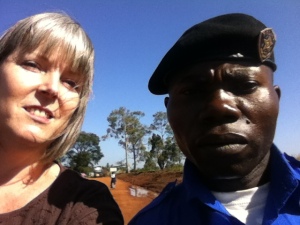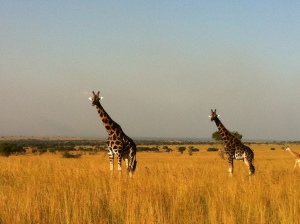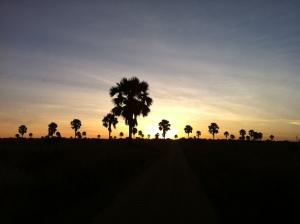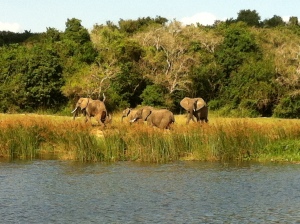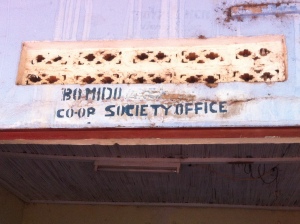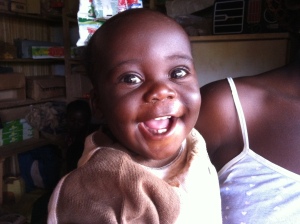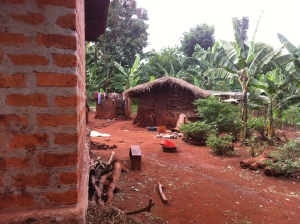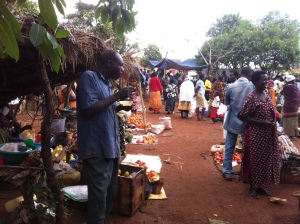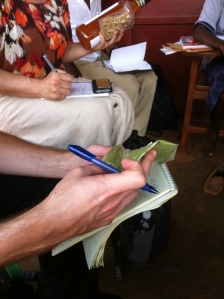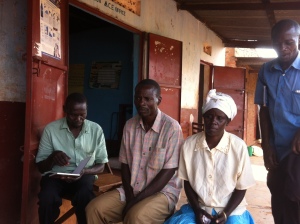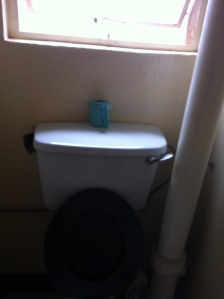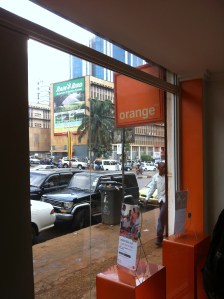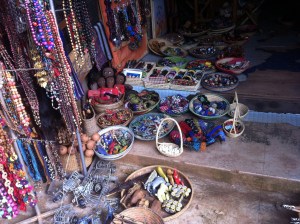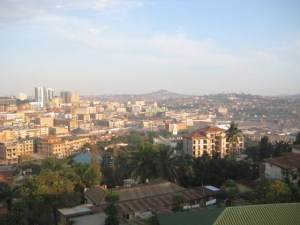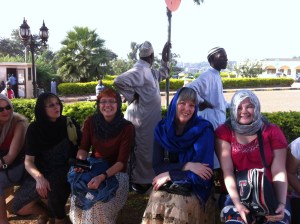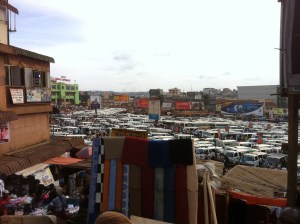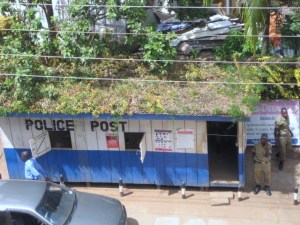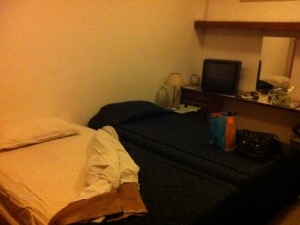I met Salvatore at the Akoloda ACE, the third-most successful marketing co-op in northern Uganda, according to UCA. We were in the town of Alito, which is accessible only by a much-rutted dirt road, and which was at the heart of the fighting during the civil war.
I’d already interviewed several people that day, and had heard some amazing and inspiring stories that I’ll report on when I get back to Canada. But his story was so far outside my experience that I was floored. Salvatore spoke some English and we had a translator as well.
He began by telling me, “Long ago, I had an unsettled mind and went into the bush. I returned when I found the work was very difficult.” He explained that he was captured by Kony‘s men, and that along with other the captives he was tortured. He was given 300 lashes with a cane that left scars on his buttocks, and he made a gesture around his neck that I interpreted to mean he had either had a rope put around it, or a machete held to it.
When Salvatore returned to Alito he brought a baby boy with him, Kizito Bob, whose parents had been killed in the fighting. He approached the Akoloda ACE for help, and was given maize (corn) seeds. His first planting yielded a bumper crop and with the proceeds he purchased another 32 sacks of seeds. The ACE helps bulk his product so that he can get a good price for it. Salvatore also has an income from brick-making.
With his newfound security, Salvatore was able to put Bob through school. The boy is now 19 years old and in college. Salvatore has since had two children of his own, one of whom is in school; the other will be enrolled next year.
It was so hard to look at this sweet, calm man in front of me and hear what he had been through. I’ve never cried in an interview, no matter what I was hearing, but Salvatore’s story really shocked me. I couldn’t hold back my tears though I was fighting hard to stop them because I didn’t want to put Salvatore in the awkward position of having to comfort me. But the tears wouldn’t stop and he put his hand on my arm and looked into my eyes and said, “It’s okay, it was a long time ago and things are better now.”
I am not Ugandan but I will be eternally grateful to the Ugandan Co-operative Alliance and the Canadian Co-operative Association for helping people like Salvatore through the IFAPI project. Salvatore’s story reminds me of the power of co-operatives to change lives.
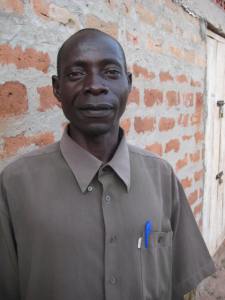
Salvatore, farmer and brick maker

